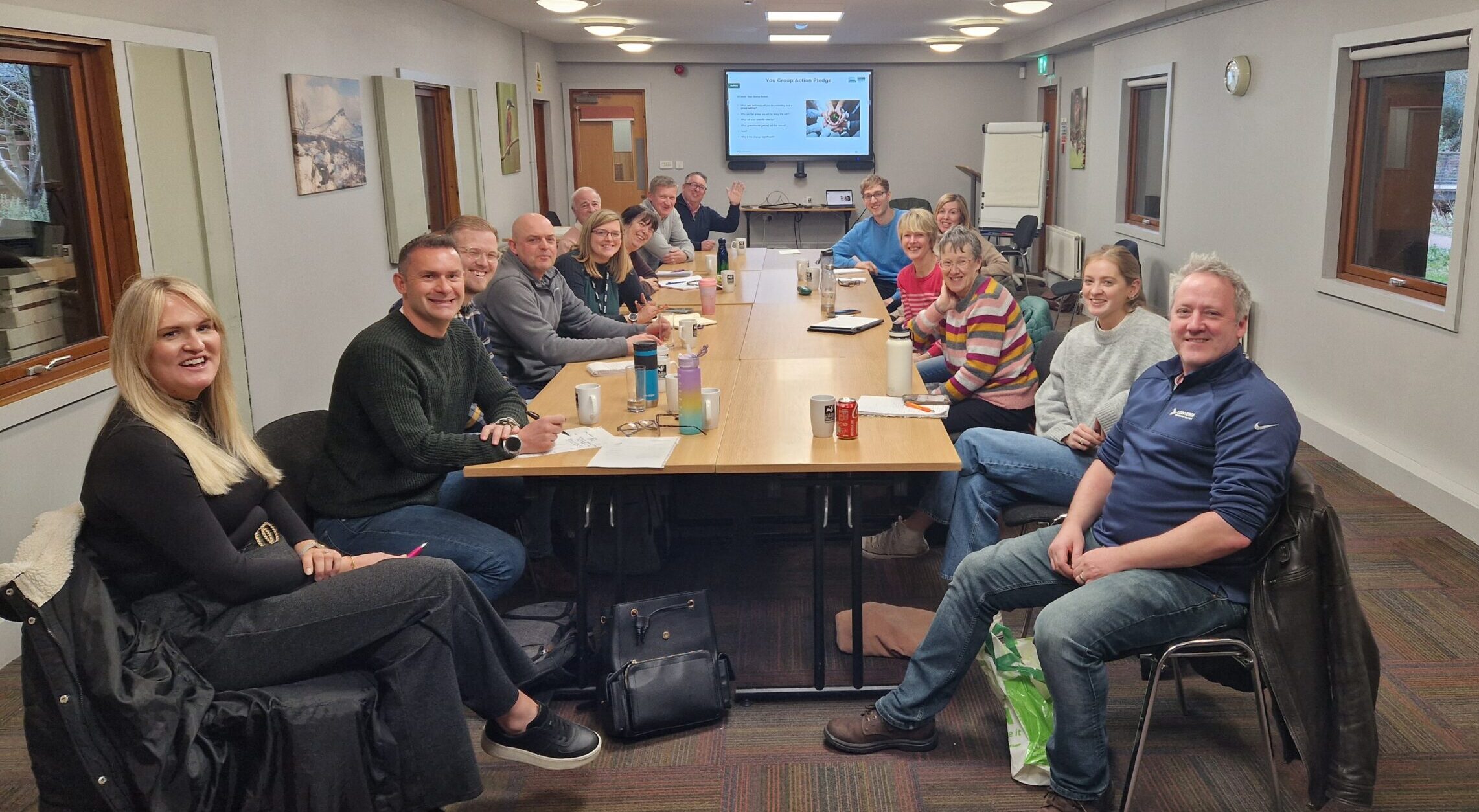Our News
Staffordshire County Council Funds Free CL Training for SMEs

Staffordshire County Council has utilised local funding to offer free Carbon Literacy training to SMEs across the county. 248 delegates have already been trained from 163 businesses, enabling climate action to spread far and wide across Staffordshire.
Supporting SMEs to take climate action
In the UK, SMEs account for 60% of employment and around half of turnover in the private sector. A recent survey by the SME Climate Hub found that an increasing number of SMEs are taking positive action on climate change despite economic headwinds, spurred by customer demand, regulatory compliance and the need for financial resilience in the face of ecological uncertainty.
Carbon Literacy training supports SMEs by helping staff understand climate change impacts, the role they play in climate action, and building science-based, actionable strategies. It engages staff by giving them the skills and motivation to implement climate action into their day-to-day work. Learners pledge to take at least one individual and one group action to become accredited as Carbon Literate.
How was Carbon Literacy rolled out to Staffordshire SMEs?
Utilising the UK Shared Prosperity Fund from Stafford Borough Council, South Staffordshire Council, East Staffordshire District Council and Staffordshire Moorlands District Council, Staffordshire County Council was able to offer fully funded Carbon Literacy training for local SMEs. With limited capacity to deliver the training internally, the council put it out to tender, securing experienced independent Carbon Literacy training provider ClimateEQ, to deliver the training. Patricia Tennant, Business Support Assistant at Staffordshire County Council, oversaw the roll-out, acting as a crucial link between the council, the trainers, and the businesses supported.
Training sessions were held each month from September 2023 to December 2024 with up to 15 places on each course, limited to two per organisation. The courses would alternate between face-to-face sessions at different local venues around the county, or an online version split up over two and a half days, so organisations could choose the delivery method that suited them best. Promoted by Staffordshire Business & Environment Network (sben), word spread, and the courses filled up quickly. A waiting list system helped to ensure full sessions in instances of last-minute dropouts to make the most of the funding.
Funding has been secured in Staffordshire to continue Carbon Literacy training. Further information can be found on the sben website: Carbon Literacy Training – Staffordshire Business & Environment Network.
What kind of businesses have been supported so far?
The local businesses supported have spanned a huge range of sectors – from wildlife charities to botanical gardens, pubs to theatres – all united by a recognition of the need to take climate action.
Chris Lewis, Managing Partner at The Lewis Partnership, a pub and hotel group, said: “There’s a lot of hype about net-zero, but this [training] gave us a lot of background and in-depth knowledge.”
Andy Ansell, the Head of Estates at the National Memorial Arboretum, said: “The Carbon Literacy training gave us some really useful measurable targets…and then we’ve taken those back to the business…I would wholeheartedly recommend that any organisation should use the Carbon Literacy training to train their senior and line management staff. It really changed the mindset of the whole business on sustainability.”
Hear from Joanne Williams, the Fundraising Manager at The Staffordshire Wildlife Trust, and David Sunnuck, Theatre Manager at the New Vic Theatre in Newcastle-Under-Lyme talk about their different experiences of undertaking the Carbon Literacy training.
What actions have businesses taken?
A wide range of unique actions have been pledged as a result of the training, relevant to the hugely varied roles across the organisations supported.
Cristina Hammond, Director of HR & Shared Services at Douglas Macmillan Hospice, has committed to impactful actions, both individually and with her team. For her individual action, Cristina pledged to review her pension investments, ensuring they exclude fossil fuel holdings, aligning her values with sustainable investment. For her group action, Christina pledged to collaborate with the Health and Safety Manager, Estates Team, and ESG Working Group. Cristina’s team plans to:
- Implement energy efficiency measures: Following their upcoming energy audit report, her team will optimise boiler temperatures and remotely control heating and air conditioning in unused rooms to reduce heating costs.
- Monitor Scope 1, 2, and 3 emissions: Tracking emissions from transport, food waste, and other activities to set and achieve realistic, impactful targets.
- Prioritise sustainable procurement: Implementing contractor assessments and policies to ensure the use of suppliers with strong ESG policies.
- Promote sustainability culture: Sharing these initiatives with their ESG committee, empowering workplace champions to promote net-zero efforts across the organisation.
After attending Carbon Literacy training, Katharine House Hospice became the first charity shop to show its customers their carbon savings. Their till displays, provided by Eproductive Ltd, calculate the average CO₂ required to make the items brand new and show the total CO₂ saving made for the whole purchase by buying second-hand.
Next steps for businesses
As more staff members are trained, their pledged actions translate into comprehensive sustainability strategies, collaboratively devised and ready to be implemented across the whole organisation. A low-carbon organisational culture develops organically, whereby, beyond their initial pledged actions, staff continue to make low-carbon decisions which not only reduce emissions but also save money and benefit staff and community wellbeing.
Organisations can achieve further recognition for their efforts to develop their Carbon Literacy and low-carbon culture by becoming accredited as a Carbon Literate Organisation (CLO). Gaining the entry ‘Bronze’ level of this tiered accreditation is a logical and relatively simple next step for SMEs. External training providers can support SMEs on their CLO journey too, but The Carbon Literacy Project can advise both trainers and SMEs on the best path. If you are an SME interested in taking this next step, get in touch at [email protected].